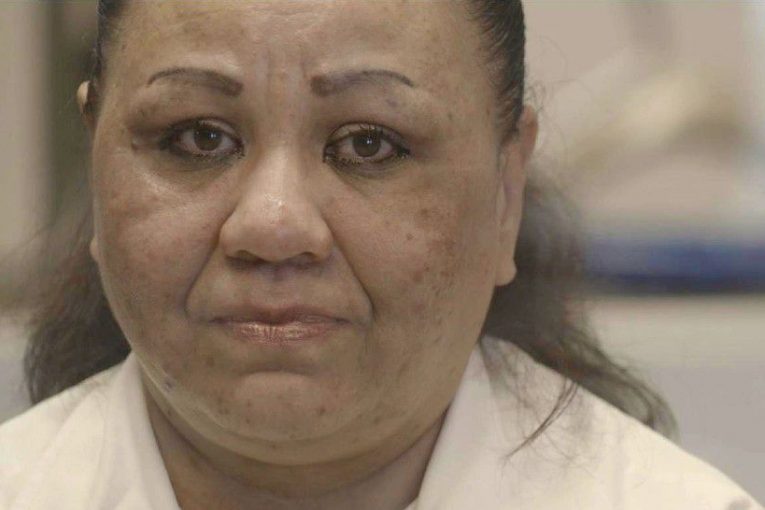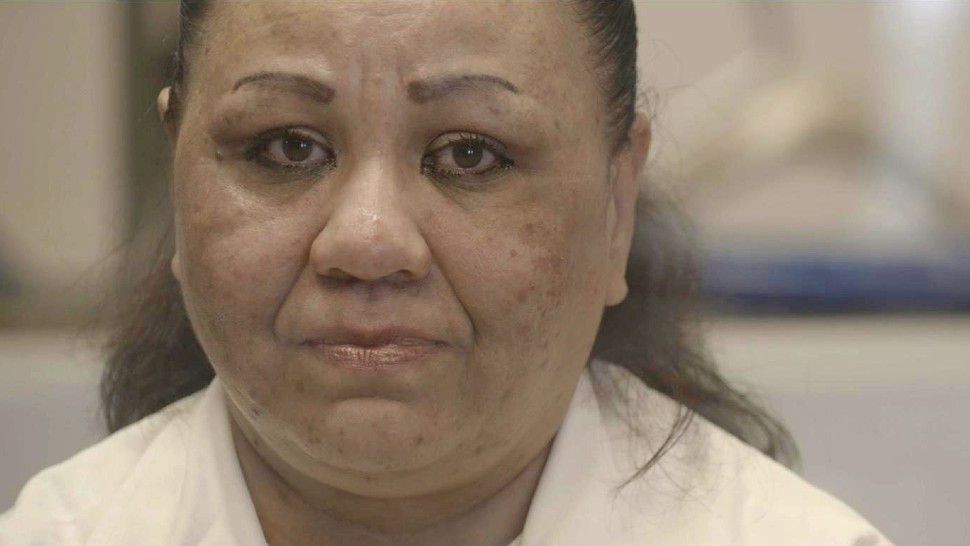

By Daniella Espinoza and Nora Dahl
BROWNSVILLE, TX – Attorneys for Melissa Lucio—scheduled to be executed April 27—have filed a motion to withdraw or modify her execution date in the 138th Judicial District Court of Cameron County.
The filings asserts that Melissa was wrongfully convicted and sentenced to death for the accidental death of her two-year-old daughter, Mariah.
Melissa, a Mexican-American from the Rio Grande Valley, is on death row despite forensic and eyewitness evidence that her daughter died from a head injury she suffered in a fall. Mariah’s death was a tragic accident, not a murder, claim her lawyers.
“Police immediately jumped to the conclusion that Mariah had been murdered and never considered medical and scientific evidence that could have established Mariah died after an accidental fall,” said Vanessa Potkin, Director of Special Litigation at the Innocence Project, and one of Melissa’s attorneys. 
“While pregnant with twins, Melissa was subjected to a five-hour, late-night and aggressive interrogation until, physically and emotionally exhausted, she agreed to say, ‘I guess I did it.’ Melissa suffered a lifetime of sexual abuse—starting when she was only six years old—and domestic violence, which made her especially vulnerable to the police’s coercive interrogation tactics.”
Melissa Lucio’s story—assert her supporters and lawyers—is like that of many marginalized women of color within the carceral state. Like many women, Melissa grew up in a constant state of survival; having to manage life’s issues while coping with an extensive history of abuse.
According to her lawyers, Melissa’s daughter Mariah suffered fatal injuries after an accidental fall from the outdoor stairs of their apartment. According to news outlets, “Mariah’s injuries did not appear life-threatening, but two days later she fell asleep… and never woke up.”
While Melissa has expressed her regrets for not taking her daughter to get medical care as soon as the incident happened, supporters claim she is “not guilty of murder” and “at most, a charge of neglect was more appropriate for Melissa than murder.”
Her lawyers charge it is important to note that Melissa’s fate was seemingly sealed even before an initial autopsy. In an application for clemency, it was stated that the State’s Medical Examiner Dr. Farley let external biases get in the way of a fair assessment.
Specifically, the application asserts that “[The State’s Medical Examiner] Dr. Farley, who was told going into the autopsy that Melissa had ‘confessed’ to abusing Mariah, and who was accompanied in the autopsy suite by two of the interrogating officers, assumed everything she observed was evidence of abuse and ignored all evidence to the contrary.”
In addition to the autopsy, Melissa was also the victim of various manipulative tools used by investigators, claim her lawyers.
During the five hours-long interrogation, despite Melissa maintaining her innocence “over 100 times,” (with a combination of “86 [verbal instances] and 26 [non-verbal instances]”), police did not stop questioning until they gained a confession.
Taken together, variables such as the ones mentioned above are believed to be the basis for a new trial, according to the petition.
And with “new scientific evidence of Melissa’s innocence, analysis of the gender bias that infected Melissa’s investigation and prosecution, and additional community support for clemency,” Melissa and her legal team have turned to a push for a new case.
As part of this application, “seven new reports, including from nationally recognized medical professionals, a pathologist, a police trainer, clinical psychologist, and neuroscientist that disprove every element of the prosecution’s case against her.”
In a more important manner, the application now includes support for clemency from “five jurors who served on the jury that sentenced Melissa to die and one alternate juror.” In their statements of support, these jurors “have expressed grave concerns about the evidence that they were not allowed to hear” during the initial trial.
For juror Alejandro Saldivar, it is clear that if the evidence was wholly presented, results of the trial would have been different. In his words, “I think if I heard this evidence I may have decided differently.”





